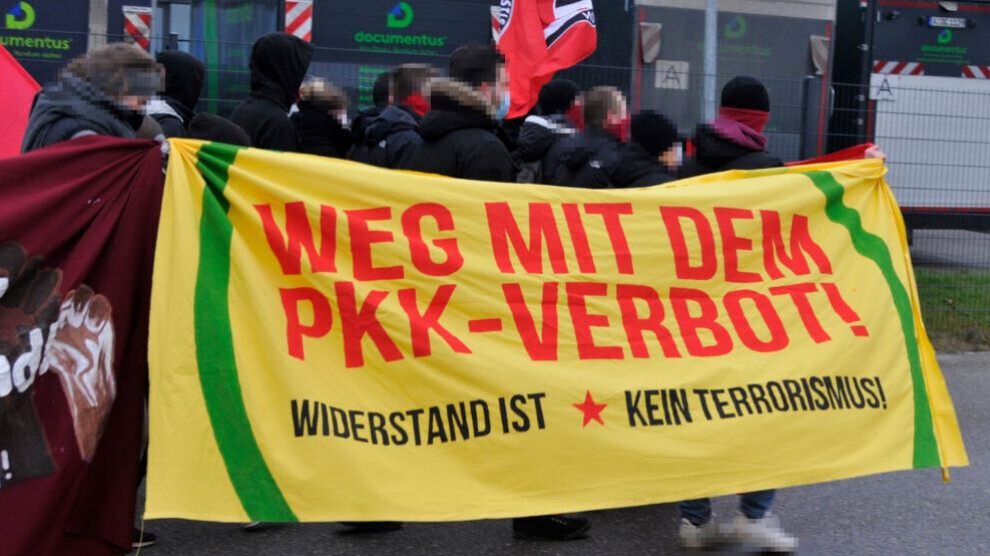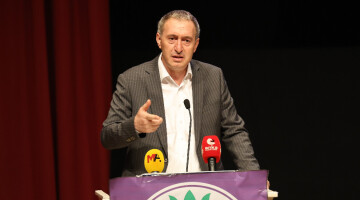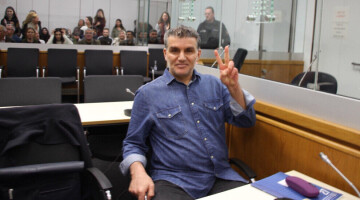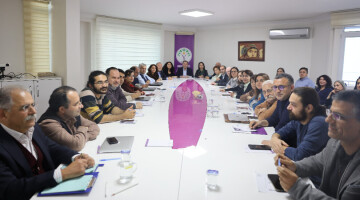On 26 November 1993, almost 28 years ago, the Federal Republic of Germany issued a ban on the Kurdistan Workers' Party (PKK). In 2002 the PKK was also placed on the EU terror list. “Since then, these decisions have prevented democratic and peace-oriented answers to the Kurdish question from being found, both here in Europe and in the Middle East. At the same time, these resolutions have been the reason to institutionalize and deepen the previously existing anti-Kurdish policy by the German state”, said the Confederation of the Communities of Kurdistan in Germany eV (KON-MED) in a call for a demonstration to “Lift the PKK ban!” that will be held in Berlin on 27 November.
"The PKK's ban on activities is being used to maintain the massive repression against Kurdish society in Europe," said the umbrella organization. Thousands of people are regularly threatened with "deportation to torture and death", judicial proceedings for showing flags, shouting slogans and membership in associations have become part of everyday life for Kurds. "In Germany alone, 18 people lost their lives because of the PKK ban," recalled KON-MED.
The ban on the PKK was pronounced on the basis of four central statements by the Ministry of the Interior, which, however, represented a “pure farce” and could easily be refuted, according to KON-MED.
The PKK violates the criminal law applicable here
Most of the crimes committed in Germany and attributed to the PKK have never been proven. The PKK has shown a self-critical attitude in several statements and apologized to German society about the crimes committed before the ban. All PKK criminal offenses in Germany are only punishable due to the prohibition of activity. This includes, for example, collecting donations and membership in the PKK.
The PKK is directed against the idea of international understanding
The PKK is internationally active and its members are international. The PKK has long since turned its back on the goal of establishing a Kurdish nation state and has been trying for decades to create a socio-political alternative to the nation-state system in the Middle East. Instead of the exclusivity of a state for Kurds, the PKK organizes peaceful coexistence between different peoples such as Kurds, Turks, Yazidi, Arabs, Persians, Armenians, Turkmen.
The PKK endangers internal security and public order
While the German state structurally discriminates against the Kurdish society living here, the PKK is actively committed to ensuring that social coexistence is organized in the form of self-governing structures. The PKK directly promotes the political-democratic awareness of the people and thus contributes directly to the maintenance of internal security and public order.
The PKK endangers the interests of Germany
The German state organizes and finances massive arms deliveries to the Turkish state, tacitly tolerates war crimes by the Turkish army, such as the use of chemical weapons, and thus actively contributes to the instability of the Middle East. The PKK condemns this role of the German state in the strongest terms and instead organizes itself on the basis of the interests of societies. This means that it acts as a stability factor against Islamist, misogynistic and racist attacks and represents a guarantee for the democratization of the Near and Middle East.
The PKK ban, a big democratic deficit in Gremany
In summary, the PKK ban represents a large democratic deficit in the Federal Republic of Germany, said KOM-DEM, because it deepens discrimination against the more than one million Kurds living in Germany and also prevents the start of a peace process that the PKK has been promoting for years. "That is why we, together with our internationalist friends, will take to the streets in Berlin on 27 November and demand that the PKK ban be lifted."












